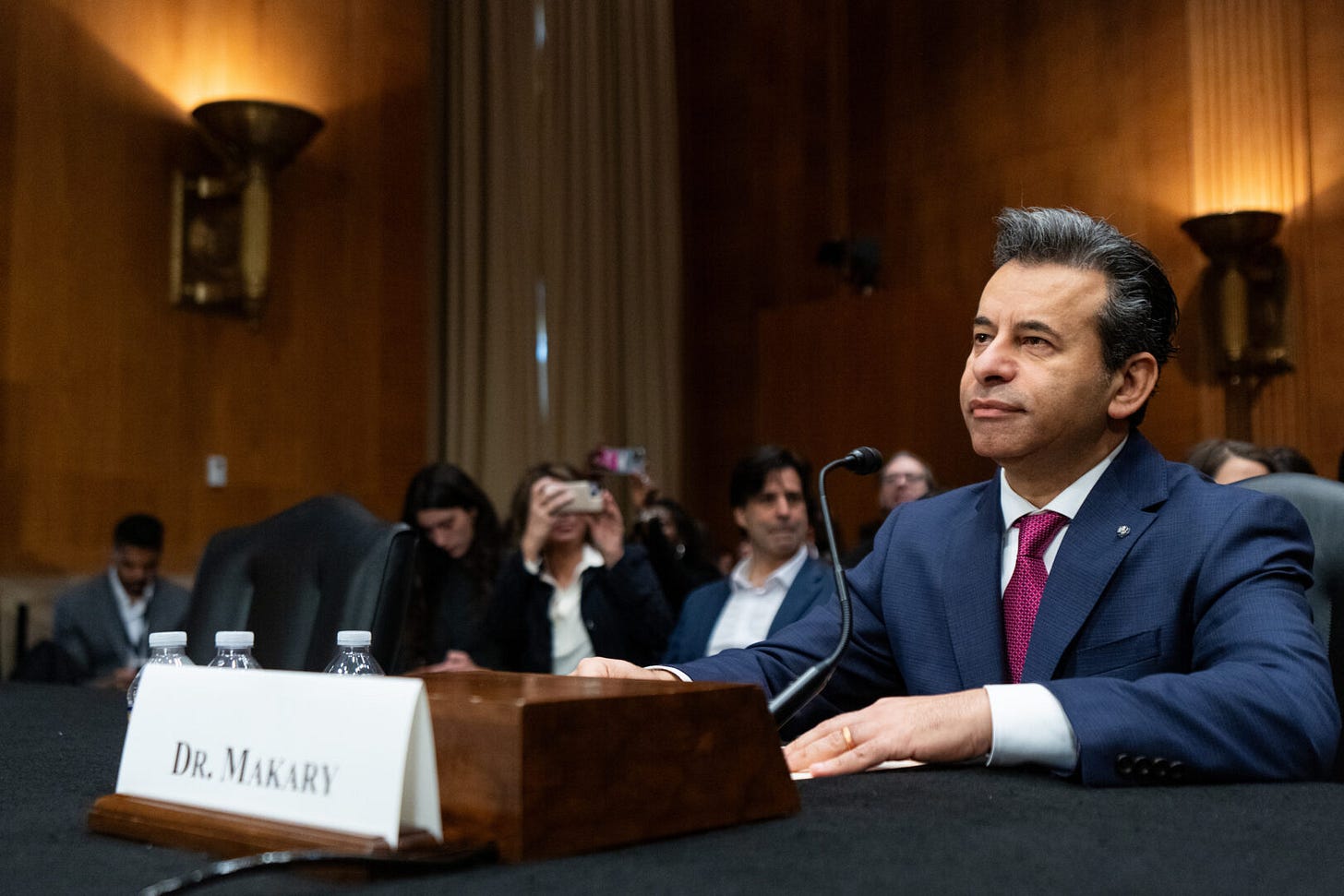The FDA’s Refusal to Restrict Mifepristone: A Betrayal of Women’s Safety
On April 24, 2025, Trump’s newly appointed FDA Commissioner Martin Makary announced that he has "no plans to take action" to restrict the availability of mifepristone, the pill used in most medication abortions in the United States. This statement is a devastating blow to those of us who advocate for the safety of women and the protection of unborn lives.
Senator Josh Hawley, a consistent voice for the pro-life movement, expressed his frustration on X, calling Makary’s remarks "exceptionally disappointing to say the least" and adding, "Not a good beginning at the FDA." The FDA’s inaction signals a dangerous disregard for the well-documented risks associated with mifepristone, prioritizing ideology over the health and safety of women. Hawley had previously taken issue with Makary’s selection of former Biden administration Justice Department attorney, Hillary Perkins, for the FDA’s chief counsel.
The data speaks for itself. According to a post by Daniel Horowitz on X, mifepristone’s manufacturer concedes that between 2% and 7% of users—equating to 100,000 to 350,000 women—require surgery due to adverse reactions to the drug. The FDA’s own warning label states that between 2.9% and 4.6% of women who take mifepristone will end up in the emergency room due to potentially life-threatening complications. These complications include serious infections like sepsis, heavy bleeding, and even hospitalization in some cases.
Let’s put this into perspective: in 2023 alone, approximately 643,000 medication abortions were performed using mifepristone. Based on the FDA’s own estimates, that means roughly 20,000 to 30,000 women suffered complications severe enough to require emergency medical care. These are not abstract numbers—these are real women facing real pain, real trauma, and, in some cases, life-threatening consequences. Meanwhile, the FDA continues to promote mifepristone as “safe.”
The Unspoken Pain of Medication Abortion
Beyond the physical complications, the emotional and physical pain associated with medication abortions is often glossed over. A recent study from the United Kingdom revealed that nearly half of women undergoing a medication abortion experienced more pain than they were told to expect by their healthcare providers. Four in 10 women rated their pain as "severe," scoring between 8 and 10 on a standard pain scale. Women who take mifepristone are also more than nine times as likely to develop severe bleeding complications.
Additionally concerning is the increase in mail order of mifepristone. In 2021 the policy requiring a physician visit to obtain mifepristone was removed and the pill could now be obtained without an in-person consultation, opening the floodgates for mail order abortions. Nine states (and Washington DC) allow abortion for minor children without parental consent, putting children obtaining mail-order abortions at great risk of harm.
California
Connecticut
Hawaii
Maine
New Jersey
New Mexico
New York
Oregon
Washington
Washington, D.C.
This is unacceptable. Women and young girls deserve to be fully informed about the risks they face, not misled by a narrative that downplays the realities of medication abortion.
The FDA’s refusal to restrict access to this dangerous drug is not just a failure of oversight—it’s a betrayal of the very people the agency is supposed to protect. Women deserve better than to be treated as collateral damage in the push to expand abortion access.
We rely on your generous donations and subscriptions to continue our mission. Your support enables us to advocate for conservative values, provide insightful content, and mobilize grassroots efforts across the country. Subscribe or donate today! Thank you!






